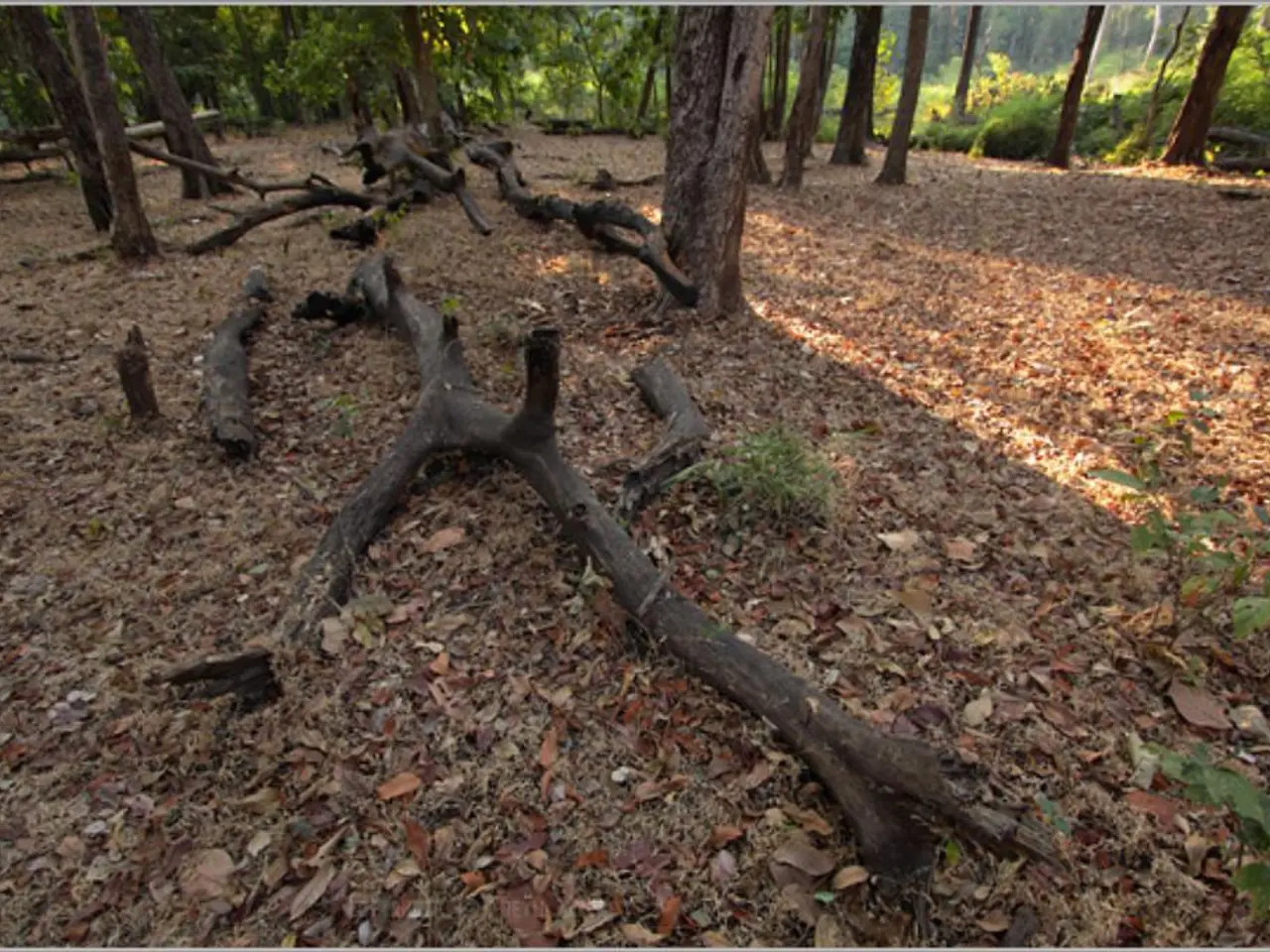Carbon capture pilot project initiates at Metsä Group mill, marking a pioneering move in the industry.
Metsä Group, a leading Finnish forest industry company, is spearheading efforts to promote the development of carbon capture and utilization (CCU) technologies in Europe. The company is currently exploring the possibilities of implementing a demo operation for carbon fertilizer manufacturing at Äänekoski in Finland.
The planned demo plant, if realized, could have a capacity of between 30,000 and 100,000 tonnes of captured carbon dioxide. Metsä Group is working in collaboration with Andritz to test various operating models for energy consumption and the amount of carbon dioxide captured at a pilot plant located at Metsä Group's Rauma mill. This pilot plant is believed to be the first in the industry to harness carbon dioxide from pulp mill flue gases.
The pilot plant's primary objective is to gather information about requirements for flue gas treatment and the quality of the end-product. No specific details about the plant's operation, testing models, or the gathering of information about requirements for flue gas treatment and the quality of the end-product were provided.
Meanwhile, VTT and LUT University have successfully converted biogenic carbon dioxide from waste incineration and the forest industry into high-value-added products such as polypropylene and polyethylene through a three-year CCU effort. This project also involved the conversion of local flue gas carbon dioxide into raw materials.
The European chemical industry is heavily reliant on fossil fuels as raw materials, with over 90% of the industry relying on these resources. The use of biobased carbon dioxide from pulp mills as a raw material in the fuel and chemical industries is described as a virtually untapped byproduct that could potentially revolutionize the industry.
However, implementing the project would still require the resolution of technical and financial difficulties. Metsä Group intends to promote the emergence of markets for carbon capture through its development activities. The market development for carbon capture is thought to depend on regulation at the EU and national level, as well as investment support for the green transition.
The Renewable Carbon Initiative and nova-Institute have presented policy proposals to aid Europe's transition into CCU. Metsä Group also plans to explore the possibility of a larger-scale demo plant for carbon capture at a second location, but no specific details about these plans were mentioned. No decision has been made regarding the location of the potential demo plant.
Driving renewable carbon technologies is expected to result in economic benefits for the EU, as it could lead to the emergence of new industries and job opportunities. The success of Metsä Group's initiatives could pave the way for a greener and more sustainable European chemical industry.
Read also:
- President von der Leyen's address at the Fourth Renewable Hydrogen Summit, delivered remotely
- Unveiling Innovation in Propulsion: A Deep Dive into the Advantages and Obstacles of Magnetic Engines
- International finance institutions, EBRD, EIB, and SEB, offer €84.8 million in loans for solar energy projects within Latvia.
- Hydrogen Europe Unites With 50 Other Parties in Endorsing the Maritime Fuel Coalition's Declaration








